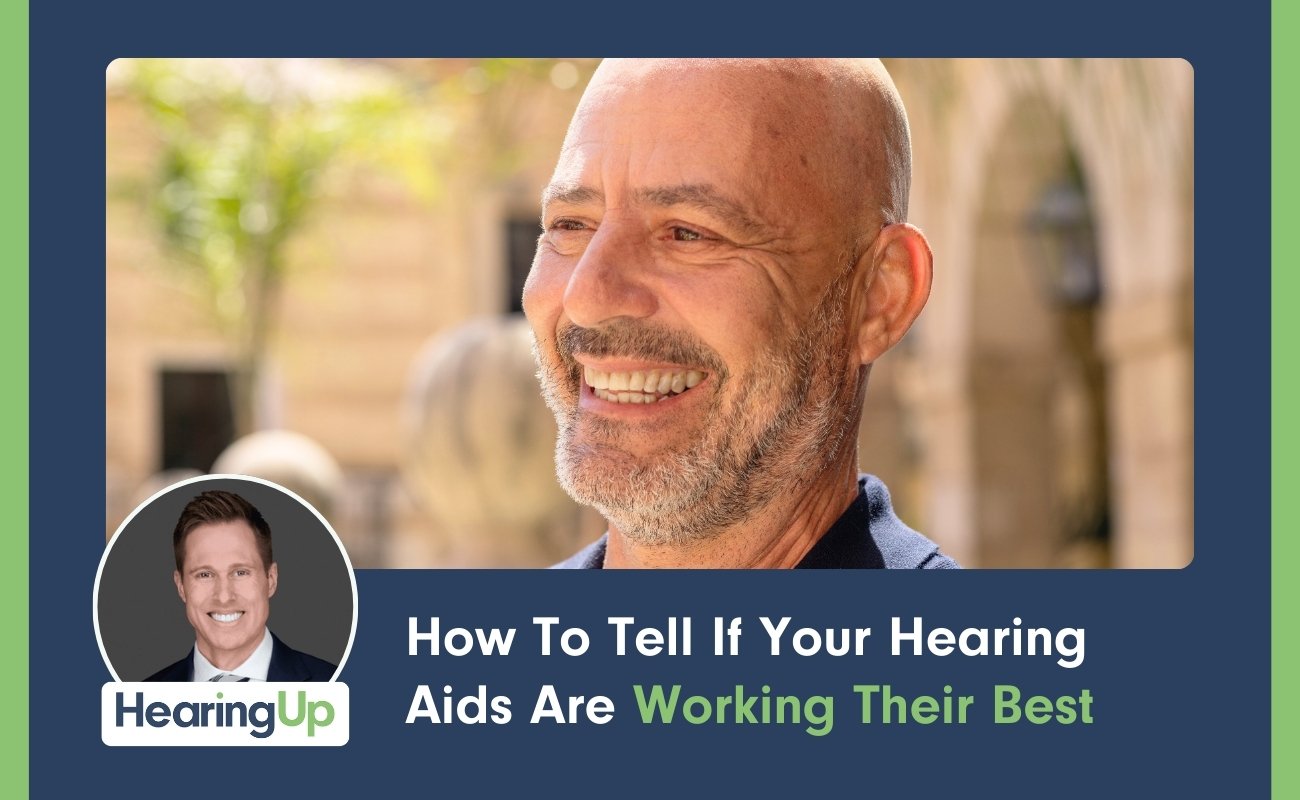Hi guys. Rachel Cook, Doctor of Audiology at Applied Hearing Solutions in Phoenix, Arizona, and in this video I'm going to show you three ways to get significantly better sound quality from your TV...coming up!
With all of the streaming platforms available today. It's easy to find and watch all of the movies and shows that you love, wherever you are, whenever you want, but for many couples, this relaxing experience can turn into a battle over the remote control, and not to change the channel, but to change the volume. I'll admit the TV volume is known to fluctuate between programs and commercials, and dialogue can often get lost in the background noise. However, if you find yourself in a daily dispute over the volume setting, you need to try these three modifications to make listening to the TV better. But before I do that, I would really appreciate if you could hit the like button to bring these videos to a wider audience. And while you're at it, if you have not yet, hit the subscribe button with notification bell. Go ahead and do that as well so that you never miss any one of our newly released videos.
Now, let's take a look at why you may be struggling to get clarity from the tv. There are many hearing loss types and configurations, but the most common hearing loss type among adults is pressed by QSIs, also known as age related hearing loss. Many people with this type of hearing loss report that they can hear that someone is talking, they just can't quite understand what they're saying. This is because their low pitch hearing allows them to hear many sounds of speech that contribute to volume and awareness, but the sounds that are needed for intelligibility are no longer able to make it from their ears up to their brain. This will cause them to continue increasing the volume on the tv, but often results in minimal to no improvement in the clarity of the dialogue. The first thing that you can do to improve the clarity from your TV is to change your setup.
Every home has its own unique layout, but more modern design trends have led to extremely poor acoustics in the home. For example, the height of the ceilings, the type of flooring and the furniture inside all impact. How sound travels and how sound travels is important, especially because the quality of the sound depends heavily on distance and reverberation. Distance is important to sound quality because sound loses energy as it travels, meaning the further you are away from the sound source, the lower the volume becomes. Reverberation or echo is important because as that sound travels, it bounces off of hard surfaces, effectively diminishing the clarity of the sound. Without volume and clarity, there is very little chance that you're going to be able to hear any of the dialogue coming from your tv. To combat this, you'll need to take a hard look at your setup to determine if there are ways to reduce the distance between yourself and the TV or by decreasing reverberation, by adding elements that absorb sound.
Reducing the distance may require some rearranging, but this this step is arguably the most important in improving the volume of the TV without having to crank it up on the remote. Decreasing reverberation can be achieved by adding things that absorb sound like area rugs, thick curtains, and decorative pillows. These simple design additions help to reduce the echo created by hard reflective surfaces, helping the sound maintain its clarity. If you rearrange your layout to shorten the distance and add elements to help reduce echo, but you still struggle in understanding what's being said, then the second thing that I would recommend to improve your TV watching experience is to get hearing aids. The reason why hearing aids can help with getting better clarity from the TV is that the hearing aids can be programmed specifically to give you more high frequency amplification than low frequency amplification. This way you can get more clarity while watching the TV rather than just getting more volume.
Prescription hearing aids programmed by a hearing healthcare professional who follows best practices are individually customized and verified to deliver precise amounts of amplification where you need it based on your unique hearing loss. And if you don't know what best practices are, I highly recommend you check out Dr. Cliff's video that I will link in the description properly programmed hearing aids can deliver an incredible amount of speech clarity without an uncomfortable amount of overall volume, improving several listening situations like watching tv, the key words being properly programmed. If they're not programmed properly, they probably will not help very much if you already have hearing aids that have been programmed and verified properly, but still continue to struggle while listening to the tv. Then the third thing you can do to improve the clarity of your TV is to use a TV streamer. A TV streamer is an accessory that plugs directly into your TV and pairs wirelessly with your hearing aids to deliver direct audio input at the exact prescription for your hearing loss.
Remember when I spoke earlier about distance and reverberation reducing the overall quality of sound with direct audio input from a TV streamer? The sound from your TV is wirelessly transmitted to your hearing aids, eliminating the negative effects of distance and reverberation. This results in a strong clean signal being sent directly into your hearing aids, improving both the volume and clarity of the sound without increasing the volume of the TV for everybody else in the room. Whether a TV streamer can work for you is dependent on the age and style of your hearing aids, so ask your provider if this is an option for you. You'll be so glad you did. TV streamers are by far the most widely used accessories by individuals with hearing loss because they flat out work every time. If making changes to your living room or bedroom setup does not result in an improvement in speech clarity, it's worth scheduling an appointment with a hearing healthcare professional to evaluate your hearing. If you already have hearing aids but are still looking for a noticeable difference in understanding the dialogue on tv, make sure you're seeing a provider who follows best practices to maximize and verify your performance and ask them if a TV streamer could work for you. That's it for this video. If you have any questions, go ahead and drop them in the comments below. And if you liked this video, please be sure to give it a thumbs up and subscribe for more videos just like this one.
Hi guys. Rachel Cook, Doctor of Audiology at Applied Hearing Solutions in Phoenix, Arizona, and in this video I'm going to show you three ways to get significantly better sound quality from your TV...coming up!
With all of the streaming platforms available today. It's easy to find and watch all of the movies and shows that you love, wherever you are, whenever you want, but for many couples, this relaxing experience can turn into a battle over the remote control, and not to change the channel, but to change the volume. I'll admit the TV volume is known to fluctuate between programs and commercials, and dialogue can often get lost in the background noise. However, if you find yourself in a daily dispute over the volume setting, you need to try these three modifications to make listening to the TV better. But before I do that, I would really appreciate if you could hit the like button to bring these videos to a wider audience. And while you're at it, if you have not yet, hit the subscribe button with notification bell. Go ahead and do that as well so that you never miss any one of our newly released videos.
Now, let's take a look at why you may be struggling to get clarity from the tv. There are many hearing loss types and configurations, but the most common hearing loss type among adults is pressed by QSIs, also known as age related hearing loss. Many people with this type of hearing loss report that they can hear that someone is talking, they just can't quite understand what they're saying. This is because their low pitch hearing allows them to hear many sounds of speech that contribute to volume and awareness, but the sounds that are needed for intelligibility are no longer able to make it from their ears up to their brain. This will cause them to continue increasing the volume on the tv, but often results in minimal to no improvement in the clarity of the dialogue. The first thing that you can do to improve the clarity from your TV is to change your setup.
Every home has its own unique layout, but more modern design trends have led to extremely poor acoustics in the home. For example, the height of the ceilings, the type of flooring and the furniture inside all impact. How sound travels and how sound travels is important, especially because the quality of the sound depends heavily on distance and reverberation. Distance is important to sound quality because sound loses energy as it travels, meaning the further you are away from the sound source, the lower the volume becomes. Reverberation or echo is important because as that sound travels, it bounces off of hard surfaces, effectively diminishing the clarity of the sound. Without volume and clarity, there is very little chance that you're going to be able to hear any of the dialogue coming from your tv. To combat this, you'll need to take a hard look at your setup to determine if there are ways to reduce the distance between yourself and the TV or by decreasing reverberation, by adding elements that absorb sound.
Reducing the distance may require some rearranging, but this this step is arguably the most important in improving the volume of the TV without having to crank it up on the remote. Decreasing reverberation can be achieved by adding things that absorb sound like area rugs, thick curtains, and decorative pillows. These simple design additions help to reduce the echo created by hard reflective surfaces, helping the sound maintain its clarity. If you rearrange your layout to shorten the distance and add elements to help reduce echo, but you still struggle in understanding what's being said, then the second thing that I would recommend to improve your TV watching experience is to get hearing aids. The reason why hearing aids can help with getting better clarity from the TV is that the hearing aids can be programmed specifically to give you more high frequency amplification than low frequency amplification. This way you can get more clarity while watching the TV rather than just getting more volume.
Prescription hearing aids programmed by a hearing healthcare professional who follows best practices are individually customized and verified to deliver precise amounts of amplification where you need it based on your unique hearing loss. And if you don't know what best practices are, I highly recommend you check out Dr. Cliff's video that I will link in the description properly programmed hearing aids can deliver an incredible amount of speech clarity without an uncomfortable amount of overall volume, improving several listening situations like watching tv, the key words being properly programmed. If they're not programmed properly, they probably will not help very much if you already have hearing aids that have been programmed and verified properly, but still continue to struggle while listening to the tv. Then the third thing you can do to improve the clarity of your TV is to use a TV streamer. A TV streamer is an accessory that plugs directly into your TV and pairs wirelessly with your hearing aids to deliver direct audio input at the exact prescription for your hearing loss.
Remember when I spoke earlier about distance and reverberation reducing the overall quality of sound with direct audio input from a TV streamer? The sound from your TV is wirelessly transmitted to your hearing aids, eliminating the negative effects of distance and reverberation. This results in a strong clean signal being sent directly into your hearing aids, improving both the volume and clarity of the sound without increasing the volume of the TV for everybody else in the room. Whether a TV streamer can work for you is dependent on the age and style of your hearing aids, so ask your provider if this is an option for you. You'll be so glad you did. TV streamers are by far the most widely used accessories by individuals with hearing loss because they flat out work every time. If making changes to your living room or bedroom setup does not result in an improvement in speech clarity, it's worth scheduling an appointment with a hearing healthcare professional to evaluate your hearing. If you already have hearing aids but are still looking for a noticeable difference in understanding the dialogue on tv, make sure you're seeing a provider who follows best practices to maximize and verify your performance and ask them if a TV streamer could work for you. That's it for this video. If you have any questions, go ahead and drop them in the comments below. And if you liked this video, please be sure to give it a thumbs up and subscribe for more videos just like this one.

HRV objectively measures stress affecting tinnitus by tracking autonomic balance, enabling data-driven treatment adjustments via Modern Tinnitus Basecamp.
Read More
Three methods confirm hearing aid performance: test box for specs, Real Ear Measurement for accuracy, and outcome assessments for effectiveness.
Read More.jpg)
Daily shower water flushing helps prevent earwax buildup more effectively and affordably than products, though impacted wax needs professional removal.
Read More
Hearing aid costs cover technology, expert services like Real Ear Measurement and fitting, ongoing support, and admin fees—justifying the investment.
Read More
Four evidence-based tinnitus treatments help patients achieve habituation through different neurological and psychological approaches.
Read More
Tinnitus amplifies stress through control loss, uncertainty, focus problems, communication challenges, and sleep disruption.
Read More